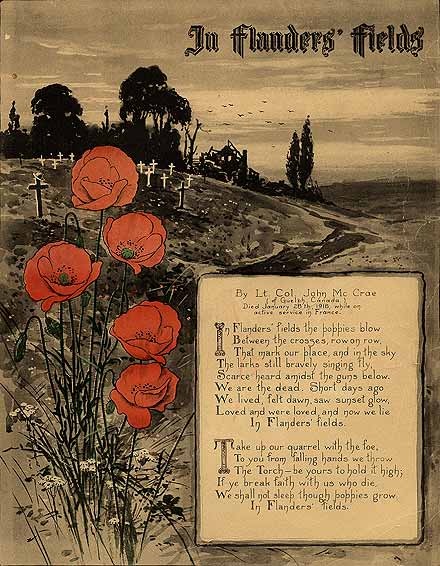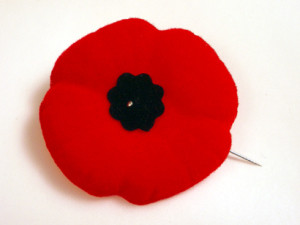I couldn’t quite make up my mind on whether or not this should be a Word Wednesday post or if I should call it Thankful Thursday so I decided to make it both. Now before anybody asks. I’m planning to tackle the US election results with a word next week. I need some time to think of a word that adequately describes what went on other than one that rhymes with musterduck. This week, however is the week of Remembrance so I’m going to concentrate on that today.
I’ve written about how important Remembrance Day is to me before, and there’s no doubt that it’s always going to be a special day in my household. Of late, I’ve been quite involved with the debate over whether or not Remembrance Day should be a statutory holiday in Ontario as it is in many other provinces. I’m of two minds on this. On the one hand, I like the idea of families being able to go to the cenotaph together to either remember family members who served or to thank veterans in person. I’ve seen the joy in an older veteran’s eyes when a small child comes up to thank them – it’s really special. Having Remembrance Day as a statutory holiday would allow this to happen more frequently. The banks and federal and provincial government offices are already closed so I’m not sure how much of a negative effect it would have on business to have the day off.
On the other hand, I understand that not all parents will bring their kids to a cenotaph or watch the ceremony from Ottawa via television or the internet so those kids may end up seeing Remembrance Day as just another day off. This argument is usually accompanied by statements such as “schools do so much for Remembrance Day”. Which used to be true but I’m not so sure anymore. I remember asking a friend’s grade 3 child who was dutifully practicing the words to “In Flanders’ Fields” why they were doing that poem. “For Remembrance Day” he said – which was a good start. I asked if they were doing anything other than memorizing a poem to recite. “No, the teacher says this is more than enough since we have the assembly too”. I may have sighed audibly at that point. The kid was blindly memorizing words and there was no teaching about WHY the poem was important or even WHAT the poem was about. Of course I explained it but it bothers me that this wasn’t done in school – especially given that the child lived within an hour of Guelph, Ontario which is the birthplace of John McCrae, the author of In Flanders’ Fields.

I asked a friend who has taught elementary school for decades about what she was seeing in the schools for Remembrance day and how it compared to what I remembered. She said that overall there is a lot less being done for a few different reasons. One is time. Teachers are strapped for time and researching Remembrance Day activities takes time. Another reason is curriculum tie-ins. This is why things like reading a poem aloud is done instead of teaching the background to the poem. One ticks the boxes for the language arts curriculum, the other doesn’t tick a grade appropriate box for history or civics at the primary level – so when combined with the first reason these mean that kids are learning the poem but not the history behind it. The third reason she gave made me incredibly frustrated though. She told me there’s a political reason – parents complain when they teach too much around Remembrance Day. It turns out, some parents feel that teaching about Remembrance Day and even celebrating it at all is promoting militarism.
Remembrance day does NOT promote militarism. In fact it promotes exactly the opposite. When we celebrate valour and courage on the battlefield we are not rejoicing in it. I have yet to meet a veteran (and I’ve talked to hundreds personally) who thinks that war is a good thing. Some will tell you that World War II was a noble war – it needed to happen to stop evil from triumphing, but they still wish it hadn’t been necessary in the first place. The same is true of military historians. We don’t celebrate war. We celebrate people – people who fought in wars yes, but people nonetheless. War is always tragic. War always hurts the innocent. We need to understand war if we want to live in peace. So not teaching about war will, ironically, prevent peace.

On November 11th, please take a moment to remember those who have served in the name of peace. Right now, more than ever, we as a nation (and as part of the global community) need to remember that war is not the solution to our differences. If you are able, attend a service at the cenotaph and thank those who served with valour.

Valour ( val·our ) noun
- Boldness or determination in facing grave danger – particularly in battle
- Heroic courage
- Bravery